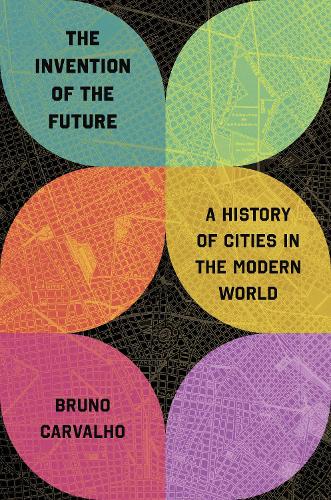
The Invention of the Future: A History of Cities in the Modern World
(Hardback)
Publishing Details
The Invention of the Future: A History of Cities in the Modern World
By (Author) Bruno Carvalho
Princeton University Press
Princeton University Press
22nd April 2026
United States
Classifications
Tertiary Education
Non Fiction
Urban and municipal planning and policy
History of architecture
General and world history
Physical Properties
Hardback
440
Width 156mm, Height 235mm
Description
A kaleidoscopic and original new history of urbanization-from Lisbon to New York, Paris to Rio de Janeiro, and Buenos Aires to Lagos
For the past three centuries, urban dwellers and planners have imagined future cities that would be radically different from those of the past. Planners pursued progress, whether focused on flying vehicles above, sewage systems below, or daily life in between. Yet, as Bruno Carvalho shows in this original and wide-ranging history, which features some sixty illustrations, modern cities have continuously defied predictions. Visionary designs and technological innovations created dramatic, unforeseen outcomes, and the ongoing urban boom is a story of continuity as well as rupture. A compelling history of imagined future cities and the real cities they created and transformed, The Invention of the Future also suggests what we might learn from their stories as we try to shape our own future.
Moving between large-scale changes and detailed examples, this captivating narrative tells the story of key moments and turning points: the rebuilding of Lisbon after the 1755 earthquake; the 1811 Commissioners' Plan for Manhattan; Parisian reforms from 1853 to 1870; Le Corbusier's plans for South American cities in the 1920s and 1930s; the postwar victory of the car; the utopian capital of Braslia; and urban growth in Africa.
In recent decades, Carvalho argues, the capacity to invent urban futures has become increasingly constrained. Social and environmental challenges loom large. But the story is not over. While cities helped create current problems, compact and transit-rich urbanization might be our best hope to combine high living standards with sustainability. Sometimes, moving forward can involve reaching back to the future.
Author Bio
Bruno Carvalho is a professor at Harvard University, where he teaches courses on cities. He is the author of Porous City: A Cultural History of Rio de Janeiro.
